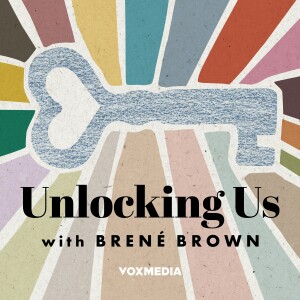

Dennis & Barbara's Top 25 All-Time Interviews
https://feeds.transistor.fm/dennis-barbaras-top-25-all-time-guestsEpisode List

A Grace Disguised (Part 1) - Jerry Sittser
A Grace Disguised (Part 1) - Jerry SittserA Grace Disguised (Part 2) - Jerry SittserA Grace Disguised (Part 3) - Jerry SittserFamilyLife Today® Radio TranscriptReferences to conferences, resources, or other special promotions may be obsolete. Descending Into the Valley Guest: Jerry Sittser From the series: A Grace Disguised (Day 1 of 3) Bob: There are times in the midst of trials and traumas of life when we wonder to ourselves where is God? Why did He let this happen? For Jerry Sittser one of those events occurred in 1991 when he and his wife and their four children and Jerry’s mother were hit head on by a vehicle traveling at 85 miles per hour. The collision was fatal for Jerry’s wife and for his mom and for one of his four children. As Jerry reflects back on that event today he sees it as something that was ultimately faith affirming. Jerry Sittser: Through a long and often difficult journey I really did discover the Christian faith is true. Grace really is available to get us through these hard stretches of life. The ultimate message of Christianity is not self help it is God’s help. Bob: This is FamilyLife Today for Monday July 6th. Our host is the President of FamilyLife Dennis Rainey, and I’m Bob Lepine. We’ll hear today how a tragic car accident can be a grace disguised. Welcome to FamilyLife Today. Thanks for joining us. You and I were having a conversation not long ago with Dr. Al Moeller, the President of Southern Seminary and we asked him about questions he gets thrown by the secular media. We said the tough questions are the ones they ask you. What are the ones that put you on the spot? Without even thinking he said we always come back to the issue of the problem of evil and suffering. How can there be a good God when there is suffering in the world? Dennis: We don’t always know what God is up to. He is God and we are not. We have a guest with us today on FamilyLife Today that I think is going to minister to a lot of our listeners. Actually I was introduced to this guest by my wife Barbara, who joins us on FamilyLife Today as well. Welcome Sweetie. Barbara Rainey: Thanks. I’m glad to be here. Dennis: Jerry Sittser has written this book A Grace Disguised which is a story out of his own life and it occurred a number of years ago. Jerry lives in Spokane Washington up in the eastern section of that great state. He is a professor of theology at Whitworth University and has a Masters of Divinity from Fuller Theological Seminary and has his doctorate in history from the University of Chicago. This leaves me with only one question Jerry, White Sox or Cubs? (laughter)Bob: Or were you there long enough to even care? Dennis: Oh he had to be if he had his PHD. Jerry Sittser: Dodgers! (laughter) Dennis: Well, I do welcome you to the broadcast and I am grateful for you writing this book, A Grace Disguised. I want Barbara to share with our listeners to help put in context out of which she gave me Jerry’s book. Bob: Was this something somebody gave you as a gift? Barbara: It was a book that someone had recommended to me a number of years ago. I bought it and started reading it and it was in my library. But I didn’t finish the book until last summer after our granddaughter Molly was born and only lived seven days and then died. As we began to try to make sense of what God had done and what He was up to I pulled that book off the shelf. This time I had a real heart for it. I needed it. I read it all the way through and I was constantly underlining and reading portions of it to Dennis and saying “listen to what this says.” I bought several copies and gave one to a couple of my daughters. I gave one to Molly’s mother, Rebecca, and a couple of our other daughters, too. I said you need to have this in your library and if you don’t read it all the way through right now you will read it eventually. Dennis: It is really a love story of sorts that started when you met your wife Linda. How did you meet her, Jerry? Jerry Sittser: I was a student at Hope College and she was a student at Hope College in Holland, Michigan. After I experienced a conversion between my sophomore and junior year we became very good friends. Really best friends. One day I was standing in a group of people and somebody got my attention from maybe 100 yards away and I turned and said something to them I’m sure. I was a little cocky back then. (laughter) Linda was in that circle and I turned back and our eyes met and that was it right there. I just fell in love on the spot. Dennis: You were smitten. Jerry Sittser: Oh, my goodness was I smitten. Bob: But you’d known her for months before this?Jerry Sittser: We were very good friends, yes. Bob: So what in that moment you don’t know? Jerry Sittser: I don’t know but our eyes met and it was just different. So I asked her out a few days later and we were married eight months later. Dennis: No, no, no. I want to know how you asked her to marry you because it has to be a great story. Jerry Sittser: Well, we went up to some property that my family owned off the Grand River up in the hills. We made a day of it and did some hiking and I had hidden a family heirloom a little silver container with the engagement ring inside it. That also was the family stone. I asked her to marry me. Dennis: You were married for 20 years. Jerry Sittser: Twenty years—just shy of 20 years and we had four children. Dennis: She was a homeschooler and she enjoyed teaching your kids. Tak...

A Grace Disguised (Part 2) - Jerry Sittser
A Grace Disguised (Part 1) - Jerry SittserA Grace Disguised (Part 2) - Jerry SittserA Grace Disguised (Part 3) - Jerry SittserFamilyLife Today® Radio TranscriptReferences to conferences, resources, or other special promotions may be obsolete. Walking By Faith Through Irreversible Loss Guest: Jerry Sittser From the series: A Grace Disguised (Day 2 of 3) Bob: Jerry Sittser understands grief and loss in a profound way. He and three of his children escaped from a car accident that took the life of his wife, his mother and one of his four children. How long would it take for someone to recover from a loss like that? Here’s Jerry Sittser. Jerry Sittser: Through a long and often difficult journey I really did discover the Christian faith is true. Grace really is available to get us through these hard stretches of life. The ultimate message of Christianity is not self help. It is God’s help. Bob: This is FamilyLife Today for Tuesday, July 7th. Our host is the President of FamilyLife Dennis Rainey and I’m Bob Lepine. Jerry Sittser says when the landscape of life has been permanently altered God’s grace is there to help you make some sense of the loss and to give you peace. Welcome to FamilyLife Today. Thanks for joining us. We have been talking a lot not just this week but in recent weeks about the subject of loss. We’re trying to help listeners understand that your responses to the loss you will experience in life will help shape you and your family and your marriage and your whole life. Dennis: It will. In fact, our guest on today’s program is really the result of losses that Barbara and I have experienced in recent days. In fact I want to welcome Barbara to the broadcast again. Barbara Rainey: Thank you. Dennis: Thanks for joining us again Sweetheart and thanks for recommending Jerry Sittser’s book A Grace Disguised. Jerry I want to welcome you to our broadcast. Welcome back. Jerry Sittser: Thank you. It’s a privilege. Jerry is the professor of theology at Whitworth University in Spokane Washington. As we mentioned earlier Jerry’s book was used in our family as it was recommended to Barbara by a friend. She started reading it after our daughter Rebecca and her husband, Jake, lost their daughter Molly after only seven days. This book really helped Barbara and me as well as Jake and Rebecca process through how the soul processes grief. We mentioned earlier how you lost your wife, your mom and your daughter in a tragic car wreck in 1991. That really is the genesis of this book. I have to ask you a big picture question. If you could summarize what you think God is up to when He allows us to experience grief what would you say? You’ve experienced it on a profound level that few people will ever experience it. What do you think He’s up to in grief? Jerry Sittser: I am not sure I can answer that question in a word. That’s a very difficult question actually. I think over all I would say that God is in the business of reclaiming people who have turned away from Him. He created us in His image. He created us to be gloriously beautiful people who participate in the divine glory. The perfect relationship that exists between Father, Son and Holy Spirit and we’ve turned away from that. That divine image has been marred and made perverse. He wants not simply to save us. He wants to reclaim us and restore us and one of the ways that happens like it or not is through suffering. I honestly think suffering is necessary in the Christian faith. It happens in lots of different ways some we can choose like the suffering that comes when we deny our appetites and practice self discipline. John Calvin called it self denial. Sometimes that suffering is imposed upon us through some kind of loss or tragedy. Either way we need some kind of suffering not masochistically but honestly realistic to become the holy people God wants us to be and to draw us into a vital relationship with Him. Bob: Grief that we experience when we go through a loss to what extent are we in…I don’t want to use the word control but to what extent do we have power over that grief? And to what extent does the grief have power over us? Do you know what I’m asking here? Jerry Sittser: Well, I’ll start by saying this. I don’t think God causes these things as if He were some kind of divine manipulator who hovers above the ground and zaps us with cancer or divorce or job loss or loss of portfolio or loss of a loved one. I think that is a very poor mechanistic view of the sovereignty of God. I think God is in it. God’s sovereignty is in it. I don’t think God causes it in that kind of crude kind of way. I will say God uses it. God’s in it in that sense. Our choice is whether we’re going to respond to the work the sanctifying work God is trying to do in our lives. Does grief and loss have power? Of course it does. It can change the entire course of our lives. But I think the greater power is the way we respond by faith to God’s work in our lives. It’s a hard thing to say. It sounds so easy and so trivial. Oh you know God’s trying to sanctify us. I almost resist saying it because I don’t what it to come across kind of cheap as if I’m quoting a Bible answer or a Bible verse and that verse is going to make everything right. Well, God works all things out for good for those who love Him. I mean that is a true statement. I believe that with all my heart but I also believe that is extraordinarily hard to work out in normal life. Bob: There were times when I’m sure the grief had to be…I don’t know if I want to say overwhelming or just so compelling that you felt powerless against it. Jerry Sittser: Of course. I think any true catastrophic loss leads to that. That’s the difference between a normal loss from which you’ll recover like you’re high school athlete and you break your leg and lose the season. It’s a big loss and it’s hard but you’re going to get your leg back again and you might be able to play another season.

A Grace Disguised (Part 3) - Jerry Sittser
A Grace Disguised (Part 1) - Jerry SittserA Grace Disguised (Part 2) - Jerry SittserA Grace Disguised (Part 3) - Jerry SittserFamilyLife Today® Radio TranscriptReferences to conferences, resources, or other special promotions may be obsolete. Forgiveness Guest: Jerry SittserFrom the series: A Grace Disguised (Day 3 of 3) Bob: Proverbs 25:11 says, “A Word fitly spoken is like apples of gold in a setting of silver.” When someone has experienced loss we need to be careful that our words are fitly spoken. Here’s Jerry Sittser… Jerry: Sometimes words can actually exacerbate the problem rather than help the problem. I mean, Job’s three friends did their best work when they just shut their mouths for a week and sat with Job on that heap of ashes. The cue is, when they’re ready to talk, then you’re ready to listen. When they really feel like they are ready to receive a word, then you give it, but never before that. And what you don’t want to do is use words to try to somehow push the loss and its significance away. Bob: This is FamilyLife Today for Wednesday, July 8th. Our host is the President of FamilyLife Dennis Rainey and I’m Bob Lepine. We’ll here today how God shows up in the midst of loss. And about how we can show up, too. And welcome to FamilyLife Today and thanks for joining us. Just as I was walking in here, I got an email from our mutual friend, Dr. Michael Easley, who is the pastor at Fellowship Bible Church in Franklin, TN, and Michael sent me a prayer that he had written to send to a couple who had experienced the loss of a child a year ago today. The child had lived two months and unexpectedly died. And Michael wrote this prayer for them. He said, I pray for you today that your memories will be sweet, that your hearts will be calmed, that you will find a non-anxious presence. That you will choose to trust and see good when there is nothing for sure, that you will grieve, but not as those who have no hope, that you will find comfort and mercy in places others may never know. That your “why” questions will be replaced with a confidence in knowing that, He knows, and that’s enough. We love you and ask Him to pour mercy, kindness and hope into your hearts. He does indeed know you and love you no matter what your experience may try to tell you. Dennis: Bob, you know as I listen to those words, I think, how many people listening to this broadcast right now have experienced loss, some kind of major loss in their lives, in the past 5 to 10 years. As I said earlier, if you live long enough, you will experience loss. In fact, life is really made up of a lot of losses as we lose our childhood, and move into adulthood. Some of those losses look good at the time but some of the losses aren’t easily figured out, in fact, some are never figured out on this side of heaven. We’ve had a guest with us, Dr. Jerry Sittser who has helped us better understand the process of grieving through his book, A Grace Disguised. Welcome back. Jerry: Thank you, it’s good to be here. Dennis: I mentioned earlier, that Barbara had recommended this book to me after our daughter, Rebecca and her husband Jake, experienced the loss of their daughter after seven days of life. And Barbara joins us on the broadcast as well. Sweetie, welcome. Barbara: Thank you, glad to be here. Dennis: In fact, I hadn’t asked you this question, sweetheart. As you read this book, what was it about Jerry’s book that most ministered to you, and why have you recommended it to so many people? Barbara: Well, I wish I had my copy in front of me, I tried to find it this morning, and I can’t find where I set that thing. But at any rate it’s all underlined and marked, and page corners turned back. And one of the things I remember most vividly is early in the first few chapters, Jerry, you talk about how loss is loss and that it doesn’t do any good to compare losses, and to say that this loss is worse than that loss. Because loss brings grief and it brings pain and that grief and that pain is real and it needs to be experienced. It is what it is. To try to explain it or measure it and say it’s not really that bad or it’s worse than this, doesn’t really make any difference in the long run. I think we are so prone to wanting to measure and figure these things out. The other piece I remember real vividly is a later chapter in the book, it talks about how our identity is changed by grief and loss and how so much of who we are is wrapped up in our identity with that thing or that person or that ability we have lost. Whether it’s a divorce or a death, or whether it’s losing the ability through physical illness and how that personal identity is transformed through the process of loss and grief. I thought that was really helpful and profound. Jerry: I call that the amputation of the familiar self. Barbara: That’s what it was, yes. Jerry: It’s extraordinarily hard, because we are really defined by our location, our relationships, our work, these things provide sources of identity and when one of those is lopped off, it requires a pretty long and significant period of adjustment to figure out who you are in the wake of the loss of that thing, when that thing defined you to some degree. We have these phantom pains, you know. Phantom pains are the leg telling you it’s still there when you look down and it’s not there anymore. That’s what an amputation does and we will go through a long period of time when we feel those phantom pains of still feeling like we are this person, we belong to this person, we do this particular line of work and this kind of thing, even though we don’t anymore. Bob: How long was it for you in the weeks that followed the car accident where your wife and your daughter and your mother all were killed? For how many months did you have this kind of reflexive phantom impulse to say, oh, I ought to call her and share this with her and then realize she’s not there? Jerry: Well, for a long time. Reflexive is the right word, too...

A Visit With Bill Bright During His Last Days (Part 1) - Bill Bright
A Visit With Bill Bright During His Last Days (Part 1) - Bill BrightA Visit With Bill Bright During His Last Days (Part 2) - Bill BrightA Visit With Bill Bright During His Last Days (Part 3) - Bill BrightFamilyLife Today® Radio TranscriptReferences to conferences, resources, or other special promotions may be obsolete. Lessons LearnedDay 1 of 3 Guest: Bill Bright From the series: Reflections of Life: A Personal Visit With Bill Bright Bob: Throughout his life and his ministry, Dr. Bill Bright has had a single focus – The Great Commission – that Christ would send us into all the world to preach the Gospel to all men. Here is Dr. Bill Bright. Bill: The average Christian does not realize that his loved ones, neighbors, and friends, are going to hell. Now you say – would a loving God send people to hell? No – God has put a cross at the entrance of hell, and the only way anybody can go to hell is to reject God's love and God's forgiveness. Bob: This is FamilyLife Today for Wednesday, February 19th. Our host is the Executive Director of FamilyLife, Dennis Rainey, and I'm Bob Lepine. Today we talk with the man who has made The Great Commission his life's objective, Dr. Bill Bright. And welcome to FamilyLife Today, thanks for joining us on the Wednesday edition. It was not long ago that you and I had the opportunity to sit down and have a conversation with a Christian leader and, frankly, two years ago if you had said we would have had that opportunity in the fall of 2002, I would have said it won't happen, because the Christian leader, in this particular case, Dr. Bill Bright – well, everyone thought that he would not live much longer. Dennis: Right, and there were a number of us who wrote Bill letters, tributes; we made phone calls. I still remember a great conversation I had with him that I thought would be my last, and he asked me to speak at an event, and I thought, "You rascal, you've done it again. You've gotten one more thing out of me. You're not even going to be here then," but Bill Bright is a great man. His life is not over. He is showing us how to finish strong, all the way to the end. He only has about 40 percent of his lung capacity due to the disease that he has, but he's writing books, he's doing interviews, he's taking a limited number of speaking engagements and, Bob, I came to you a few months ago, and I said, "It's time we went to Orlando and sat in Bill Bright's living room and talked with him again. He's now lived for a couple of years longer than either you or I thought he would. Let's go find out what he's learned." Bob: And that conversation that we had in his living room in Orlando was just a relaxed conversation where we peppered him on a variety of subjects, but it was so refreshing. Dennis: Yeah, and it was really a sweet time. For those who don't know who Bill Bright is, and there are some who perhaps don't – Bill is the founder and past president of Campus Crusade for Christ. He is the author of the "Four Spiritual Laws", which has – I suppose there are billions of "Four Spiritual Laws" that have been reproduced around the world – people sharing their faith. Bill has been used mightily by God to touch the world, to touch nations, but he also was used mightily in my own life and yours, too, Bob, and I think by the time our listeners listen to this interview, along with the next couple of days, Bill Bright will touch you deeply as well. Let's listen to Dr. Bill Bright. Bob: You've talked about being on your way to the grave. You know, there are some who are surprised that we're even having this conversation today, because there was a time just a few years ago I remember hearing you and Brant Gustafson together talking about being ready for heaven and, of course, Brant is there, you're here. How have you processed all of that over the last several years? Bill: Well, just before Easter a year ago, I came home from California to die. I said to Vonette that I was choking and fainting and all the first signs of what they told me what happened at Mayo's and the Jewish Institute in Denver and my local doctor –"What you have is horrible." He tried to get my attention, and when I received word I was dying, I said, "Praise the Lord," because, you know, you can't lose with a believer. It's win-win. If you die, you go to heaven; if you stay here, you keep on serving Him. So I had begun to praise the Lord. He thought I'd lost my sanity, and he said – then he really began to rebuke me – he said, "You have a horrible disease. You're going to die the most horrible kind of death" – he's a heart specialist and been my doctor for 30 years – and he felt he could tell me that. Most doctors wouldn't. And he said, "It's worse than cancer, it's worse than heart trouble, you're just going to choke to death." And so I was choking, and I came home to die. So when I got off the plane, a couple – Jack and Pearl Galpin [sp] had befriended this Russian doctor, and they insisted that she come and examine me. Now, here's a Ph.D, a research scientist, seven years in charge at Chernobyl, and she had no place to live except the home of the Galpins, who befriended her. So she came to live in our home, treated me three times a day, and by the end of the 30 days, I began to have new life, and I’m awed at how good I feel. Dennis: You know, there's a story I want to just tell real quickly, because I want our listeners to know this – there's a real sense in which God used a Russian doctor in your life to keep you alive, and that really can be, I think, tied back to something you did years ago with your retirement savings. You actually – you and Vonette – actually gave away your retirement to start an outreach in Moscow when the Iron Curtain dropped. You gave away your retirement, and now here, at the end of your life, what does God use to bless you back, but a Russian whose country had benefited from your sacrificial act of giving, and I think, you know, that's the kind of thing that God in heaven, I think, must have a big grin about....

A Visit With Bill Bright During His Last Days (Part 2) - Bill Bright
A Visit With Bill Bright During His Last Days (Part 1) - Bill BrightA Visit With Bill Bright During His Last Days (Part 2) - Bill BrightA Visit With Bill Bright During His Last Days (Part 3) - Bill BrightFamilyLife Today® Radio TranscriptReferences to conferences, resources, or other special promotions may be obsolete. Finish the RaceDay 2 of 3 Guest: Bill Bright From the series: Reflections of Life: A Personal Visit With Bill Bright Bob: There is a problem within the church today. According to Dr. Bill Bright, there are a lot of people who say they love God when many of them don't really know Him. Bill: The average person has a superficial view of God, and you can't love someone you don't know, you can't trust someone you don't know, you can't obey someone you don't know. So the most important thing is to find out who God is, discover His character, and just love, trust, and obey Him. Bob: This is FamilyLife Today for Thursday, February 20th. Our host is the Executive Director of FamilyLife, Dennis Rainey, and I'm Bob Lepine. Today – a conversation with a man who has spent his life introducing people to their Creator. And welcome to FamilyLife Today, thanks for joining us on the Thursday edition. You've been asked a number of times by people that question – if you could have dinner with any four people, living or dead, who would you invite to your dinner party and probably stopped and considered that question and thought about the Apostle Paul or about King David or whoever you might choose to be at your dinner party. I would imagine that there would be many listeners who, when asked that question, would have on their list, the opportunity to invite Bill and Vonette Bright to that dinner party and just to be able to interact with them about a life of faithfulness to Christ that God has honored in a remarkable way. Dennis: You know, when I was a young man starting out right after college, I had no idea how Bill Bright's life would impact mine initially, from a distance. But here in the last dozen or so years, I've had the opportunity to have many, many meals with Bill, to have personal time with him, and you and I had the opportunity to fly down to Orlando and sit in their living room and just have a sweet chat with an 81-year-old man who is suffering from a very serious illness … Bob: … he's got a pulmonary fibrosis … Dennis: … right – that has taken away 60 percent of his lungs' capacity, and, Bob, you and I both left those interviews, which we started on yesterday's broadcast, and if you missed it, I would encourage you to call and get the tapes and get the entire interview, because it's a great reminder from a man who has lived his life well, about what is really important. And one of the things I wanted to ask him about and interview him about was the subject of money, because there's a lot of great stories about how Bill Bright personally has approached money and his own personal wealth, which he doesn't have a lot of personal wealth. Bob: In spite of the fact that he has written a number of books and at one point was handed a check for $1 million. Dennis: Right, he won the Templeton Award and gave that money immediately and invested it in Campus Crusade for Christ for the purpose of prayer and fasting. Bob: In fact, I think he talks about that in the section of the interview we're going to hear today, because you did quiz him about the issue of wealth and how we handle our money and, in fact, that's where we'll pick things up today. This is Part 2 of an interview done recently with the former president and founder of Campus Crusade for Christ, Dr. Bill Bright. Dennis: You have rubbed shoulders with people who have had enormous wealth in your 81 years of life. You've been a part of seeing people invest literally tens of millions, hundreds of millions, billions of dollars in the kingdom work. What advice would you have for the man, the couple, who really want to use their lives and their wealth for the glory of God? Bill: Well, first of all, wealth is a gift of God. It all belongs to Him. At best, we are stewards. There is no one who could say, "Look, I've accumulated this vast fortune. I did it with my own ability." Everything is a gift, even the breath which we breathe, and I'm on oxygen 24 hours a day, so I appreciate breath as a gift of God. But anyone who thinks that they are responsible for their vast wealth is not thinking logically. There are many, many factors that contribute to vast wealth, and so I say to men and women of wealth – live a good life. Enjoy yourself, but you should not be extravagant and don't destroy your grandchildren by leaving them large sums of money. Take care of sending them to college or whatever they may need but be sure you do not spoil your children and your grandchildren and future heirs by leaving a trust that will cause them to be lethargic, complacent, and never develop the skills which you've developed because you had to. Remember, it's all God's money, and you're going to be held accountable in a very real way when you get to heaven, if you make it, and if your money and your wealth and your material possessions are your god, you won't make it. Bob: Have you seen people leave money to children or grandchildren and that lethargic complacency that you're talking about – have you seen those who were destroyed by … Bill: … absolutely, absolutely. I think of a tragic situation – a couple came to me one day. They had worked hard together. They had built a fortune. They had one daughter, and she married an atheist who hated God, and they said, "What are we going to do with that money?" I said, "Whatever you do, don't leave it to your daughter and your grandchi...
Create Your Podcast In Minutes
- Full-featured podcast site
- Unlimited storage and bandwidth
- Comprehensive podcast stats
- Distribute to Apple Podcasts, Spotify, and more
- Make money with your podcast












